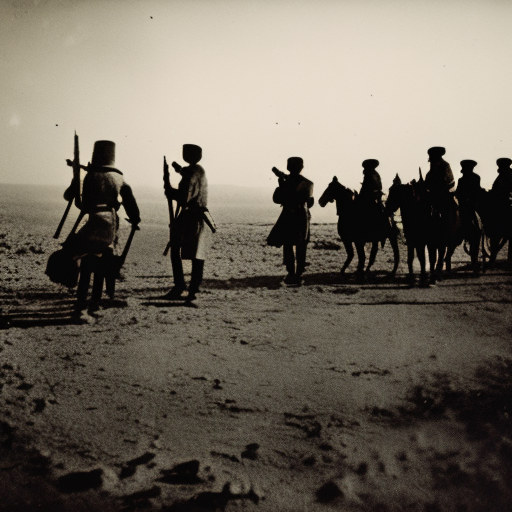Siege of Tripolitsa: The Massacre of the Greek Revolution
The Siege of Tripolitsa was a pivotal event during the Greek War of Independence that occurred from September 23 to October 5, 1821. It marked a turning point in the conflict, as it exposed the brutal nature of the Ottoman Empire’s response to the Greek uprising. The siege culminated in a massacre that shocked the world and galvanized support for the Greek cause.
The Greek War of Independence
The Greek War of Independence was a rebellion against Ottoman rule that began in 1821. The Greeks sought to establish an independent Greek state, free from the oppressive Ottoman Empire. The war was characterized by a series of battles and sieges as the Greeks fought to gain control of strategic cities and regions.
The Siege of Tripolitsa
Tripolitsa, located in the Peloponnese region of Greece, was a major Ottoman stronghold. The Greek forces, led by Theodoros Kolokotronis, laid siege to the city in an attempt to weaken Ottoman control in the region. The siege lasted for twelve days and was marked by intense fighting and heavy casualties on both sides.
The Massacre
On October 5, 1821, the Greek forces breached the walls of Tripolitsa and launched a brutal assault on the city. What followed was a massacre of unprecedented scale. The Greek soldiers, fueled by a desire for revenge and the atrocities committed by the Ottomans, unleashed a wave of violence upon the city’s inhabitants.
Thousands of Ottoman soldiers, civilians, and Greek Muslims were killed in the massacre. The streets of Tripolitsa were filled with blood and the city was left in ruins. The brutality of the massacre shocked the world and became a symbol of the Greek struggle for independence.
International Reaction
News of the massacre spread quickly, and it elicited strong reactions from around the world. Many European nations, who had previously been hesitant to support the Greek cause, were appalled by the brutality of the Ottoman response. The massacre of Tripolitsa became a rallying cry for those advocating for Greek independence.
The massacre also had a profound impact on public opinion in Greece. It served as a catalyst for increased support and recruitment for the Greek forces. The Greeks were galvanized by the atrocities committed in Tripolitsa and were determined to continue their fight for freedom.
Legacy
The Siege of Tripolitsa and the subsequent massacre played a significant role in the Greek War of Independence. It exposed the brutality of the Ottoman Empire and garnered international support for the Greek cause. The events in Tripolitsa served as a turning point in the conflict, inspiring Greeks to continue their fight for independence.
The massacre also had long-lasting consequences for the relationship between Greeks and Ottomans. It deepened the animosity between the two groups and fueled further violence and reprisals throughout the war.
In conclusion, the Siege of Tripolitsa and the subsequent massacre were pivotal events in the Greek War of Independence. The brutality of the Ottoman response shocked the world and galvanized support for the Greek cause. The events in Tripolitsa served as a turning point in the conflict, inspiring Greeks to continue their fight for independence. The legacy of the massacre continues to shape the historical narrative of the Greek struggle for freedom.












